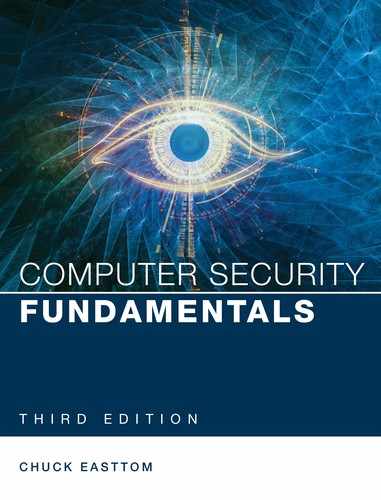Introduction
It has been more than 10 years since the publication of the original edition of this book. A great deal has happened in the world of computer security since that time. This edition is updated to include newer information, updated issues, and revised content.
The real question is: Who is this book for? This book is a guide for any computer-savvy person. That means system administrators who are not security experts or anyone who has a working knowledge of computers and wishes to know more about cyber crime and terrorism could find this book useful. However, the core audience will be students who wish to take a first course in security but may not have a thorough background in computer networks. The book is in textbook format, making it ideal for introductory computer security courses that have no specific prerequisites. That lack of prerequisites means that people outside the normal computer science and computer information systems departments could also avail themselves of a course based on this book. This might be of particular interest to law enforcement officers, criminal justice majors, and even business majors with an interest in computer security.
As was previously mentioned, this book is intended as an introductory computer security book. In addition to the numerous end notes, the appendixes will guide you to a plethora of additional resources. There are also review questions and practice exercises with every chapter. Appendix C contains the answers to the multiple choice questions for your review. Exercises and projects don’t have a single answer. They are intended to encourage the reader to explore, so answers will vary.
This book is not a cookbook for hackers. You will see exactly how hackers target a system and get information about it. You will also see step-by-step instructions on how to use some password-cracking utilities and some network-scanning utilities. You will also be given a reasonably in-depth explanation of various hacking attacks. However, you won’t see a specific step-by-step recipe for executing an attack.
This book assumes that you are a competent computer user. That means you have used a computer at work and at home, are comfortable with email and web browsers, and know what words like RAM and USB mean. For instructors considering this as a textbook, that means students will have had some basic understanding of PCs but need not have had formal computer courses. For this reason, there is a chapter on basic networking concepts to get you up to speed. For readers with more knowledge, such as system administrators, you will find some chapters of more use to you than others. Feel free to simply skim any chapter that you feel is too elementary for you.
